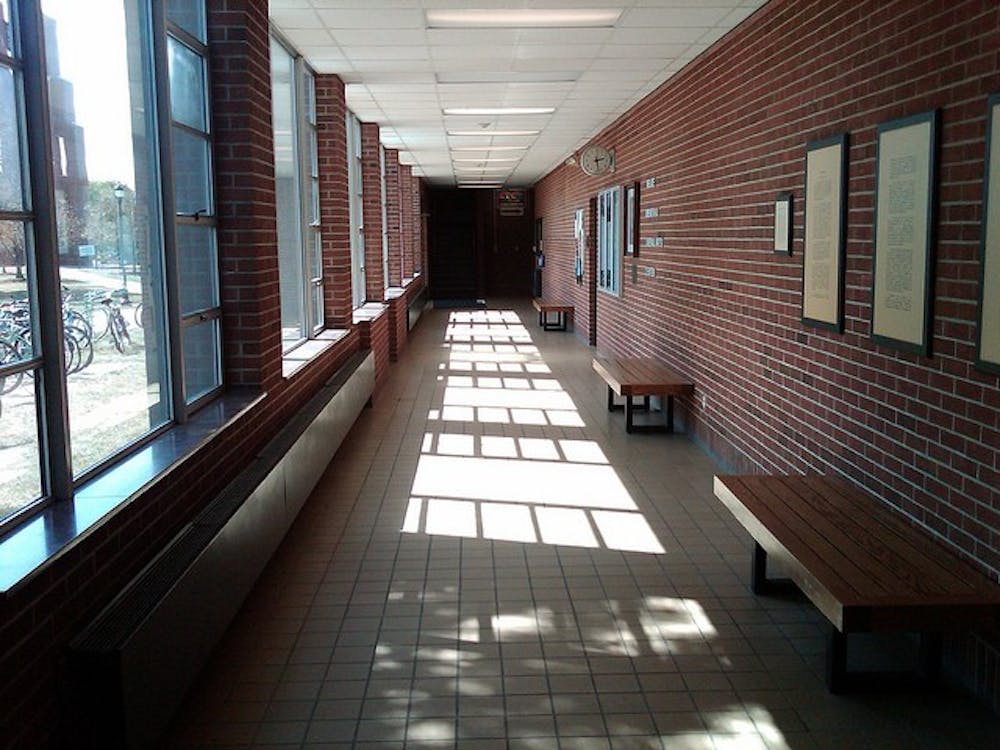Erika Norton | Echo
Many students have noticed the physical changes to campus, but students may not have noticed the behind-the-scenes change of restructuring the academic schools.
Instead of four academic schools, the 28 departments now fall under three academic schools: the School of Humanities, Arts and Biblical Studies; the School of Natural and Applied Sciences; and the School of Social Sciences, Education and Business.
Before the restructure, the four schools were the School of Liberal Arts, the School of Natural and Applied Sciences, the School of Business and the School of Professional Studies.
Every school is expected to have a certain amount of faculty members represented at committees, according to Vice Provost Jeff Groeling. The School of Liberal Arts, in terms of faculty numbers, was twice as big as either the School of Professional Studies or the School of Natural Sciences, which created an unbalanced representation.
"The inequality in terms of representation was a significant problem," Groeling said.
Provost Jeff Moshier saw the size disparity and the issues it was causing in terms of representation and committee structure and wanted to create a more balanced organization, according to Groeling.
The restructuring is more of an internal administrative change, Groeling explained, and it will most likely not impact students in a profound way.
"Students shouldn't see any noticeable differences in terms of support and services from the changed school structure," Groeling said.
The Business department is one of the biggest departments affected by the restructuring. There is no longer a School of Business, but the department of Business is now under the School of Social Sciences, Education and Business.
"If anything, having the School of Business as part of the School of Social Sciences, from my perspective, helps them because they're not a small entity out there unto themselves with limited resources," Groeling said. "They're part of a larger group where there's more opportunities for collaboration, cooperation and communication, which you did not have when we had four schools."
Another change is that the Physical Education and Human Performance department is now under the School of Natural Sciences due to an increase in emphasis on exercise science.
"They're both more closely related to what is going on over in Natural and Applied Sciences, so it's a better fit in terms of the science aspect of it," Groeling said.
The Sociology, Social Work and Psychology departments are now part of the social sciences.
Connie Lightfoot, dean of the School of Social Sciences, Education and Business, said that most of the departments would say the restructuring has affected them very little.
"Although we have interaction (among the departments), it has not yet happened very much this academic year," Lightfoot said.
Lightfoot said she will be meeting with the department chairs in October to discuss their goals as an academic school.
"The chairs and I are working on devising a mission for the school and making a list of things we want to accomplish this year," Lightfoot said.
The Biblical Studies, Christian Education and Philosophy departments are now in a school with the humanities and arts. Professional Writing is now a part of the humanities as well.
One change that may affect students is that the absentee process is now handled for all of the academic schools through the Dean of the School of Business Larry Belcher. According to administrative assistant Nancy Gillespie, if a student has extenuating circumstances relating to an absence, Belcher will approve or deny the requested excused absence.
The Excused Absence Request Form is now posted on the myTaylor Campus Portal under the Student Tab, so students can fill it out prior to coming to Belcher and Gillespie's offices in Reade 111.





